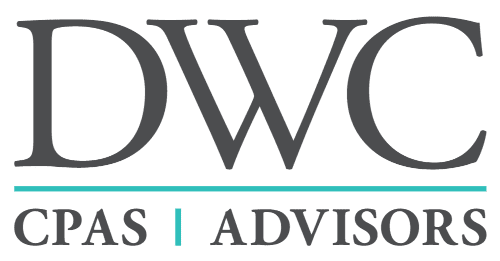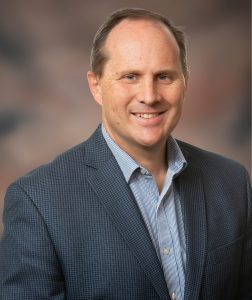I am an enthusiast for all things personal finance. Over my 30-year CPA career, I have been blessed to work side-by-side with many brilliant CPAs and advisors and nurtured close advisory relationships with numerous successful clients. My role with these clients has been more than an advisor. I’ve been a passionate student and intentional observer of the behaviors and strategies they used to build wealth. I have learned there are hard truths and behaviors consistent across everyone’s journey. I have observed as wealth increases, more complexities arise, and one’s wealth journey becomes more intimate. So with that, I would like to share what I believe are the ten stages of the wealth journey.
Stages one through four are consecutive, focusing on financial stability. Complete one step before moving to the next. Stage five is a transitionary stage and the “heartbeat” of the wealth journey; however, you can think of it at any point along the way. Stages six through ten are concurrent, and you may be active in each stage to varying degrees based on your circumstances and where you are along the wealth journey. Stages six through ten(growth and preservation) are where an advisory team with an investment advisor, CPA, attorney, etc., can add significant value to your journey.
Stage 1: Plant investment seeds. Time is a vital tool in building wealth, and the earlier we start planting investment seeds (even with small dollars), the bigger the wealth tree in the later stages of our journey. The best way to get started is to participate in your employer’s retirement plan and take advantage of the employer’s match. This is free money and too good an opportunity to pass up.
Stage 2: Create a Murphy fund. Murphy’s law is an adage typically stated: “Anything that can go wrong will go wrong.” We must prepare for unexpected emergencies by having cash on hand. A Murphy Fund allows us to avoid high-interest consumer debt to cover emergencies. Your Murphy Fund should be customized to your circumstances. Choose a dollar amount between $1,000 and the total of your deductibles for auto, home, and health insurance. Determine an amount that makes sense for you based on your unique circumstances related to health history, vehicle reliability, age of pets, age of appliances, etc.
Stage 3: Pay off consumer debt. High-interest consumer debt is a significant headwind on our wealth journey. To build financial stability, it is necessary to aggressively pay off consumer debt utilizing either the debt snowball method (pay off the lowest balance first, then move to the next lowest balance) or the debt avalanche method (pay off the highest interest balance first, then move to the next highest interest balance).
Stage 4: Create a fully funded emergency fund. Here is where we grow our Murphy Fund to an emergency fund equal to three to six months of household living expenses. A fully funded emergency fund will allow us peace of mind to weather any financial storm that may come our way.
Stage 5: Know your “Why.” This may seem fluffy, but trust me, it’s important. Simon Sinek started a revolution with his books, Start With Why and Find Your Why. Your “Why,” along with your “How” (principles, behaviors, and actions that bring your Why to life), is about serving others and positively impacting their lives. Making an impact increases the value others will see in you and, I believe, leads to your ability to maximize your income, an important element leading into the next growth stages of the wealth journey.
Stage 6: The retirement account waterfall. I consider retirement accounts as a series of descending buckets. Each individual’s waterfall may look different; however, a common strategy would be: fund the employer retirement plan up to the point of the match , then fully fund a Health Savings Account (HSA), then fully fund a Roth IRA, then go back to the employer retirement plan and fill it up to the max before allowing all excess savings to spill over into an after-tax brokerage account. A good goal is to save 25% of your pre-tax income into the retirement account waterfall.
Stage 7: Build it big! Here, we focus on supercharging our wealth building through investing in a combination of three things: an after-tax brokerage account (started in stage six), real estate and other alternative investments, and closely-held businesses. Many advisors will forget to mention a closely-held business as an integral component of building wealth. However, as an experienced CPA advisor, I have witnessed clients who built significant wealth through the start-up, nurturing, and exiting of a closely-held business.
Stage 8: Funding college and other future expenses. Utilizing 529 Plans to fund future college expenses is important for those of us with young kids. However, college savings should be thought of only after prioritizing retirement funding. You can also begin to set aside cash for known future expenses like weddings, new vehicles, new home down payments, etc.
Stage 9: Strategically pay off the mortgage. At a minimum, I am a proponent of paying off your mortgage as you enter retirement. However, paying off the mortgage early may not be the right choice for everyone. Consider developing a strategic mortgage payoff plan customized to your unique journey.
Stage 10: Legacy. Legacy is the preservation stage of the wealth journey. Philanthropy, planning for generational wealth transfer, and living life abundantly are key elements of this stage.
These stages should be thought of as a general customizable framework versus a rigid cookie-cutter process. Your quest may look vastly different than another’s, even though both may experience success.
Good luck and I look forward to seeing you on the path of life’s wealth journey.
Christopher L. West, CPA, PFS, is CEO and a Principal of Dalby, Wendland & Co., P.C., and DWC Wealth Advisors. During his public accounting career as a tax professional and advisor, Chris specialized in mergers and acquisitions, real estate advisory, cost segregation studies, small business taxation, and estate planning and income tax planning for high net-worth individuals. His passion is helping others find fulfillment and their definition of success in their wealth journey. He is a licensed Certified Public Accountant, Personal Financial Specialist, and is a series 65 investment advisor representative with Global Retirement Partners, LLC. Chris graduated with a Bachelor of Science in Accounting from Colorado Mesa University, Grand Junction. Investment advisory services offered through Global Retirement Partners, LLC (GRP) dba DWC Wealth Advisors, an SEC registered investment advisor. GRP and Dalby, Wendland & Co., P.C. are separate and unaffiliated entities.




